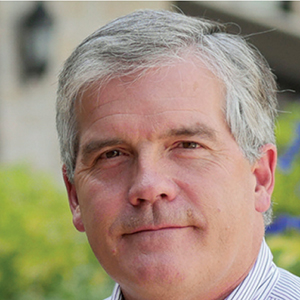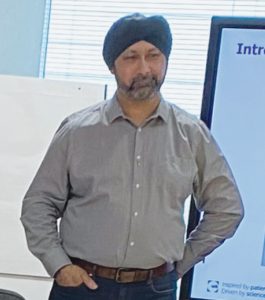UCB makes learning part of the plan for launches
Cover Story – By David Fortanbary
Launching a new product, indication or service in today’s market is complex. It requires thoughtful planning, preparation and a great deal of cross-functional collaboration and coordination.
On average, the pharmaceutical and biotech industry launches 51 new products each year, according to the Center for Drug Evaluation and Research (CDER). This does not account for more sNDAs approved yearly for new indications and product usage. The median number of new medical devices approved yearly was 32 from 1987 to 2020, excluding supplemental applications.
That’s a lot of planning and preparation. A part of that preparation is to build the right skills and capabilities with the right people at the right time to launch flawlessly.
You’ve heard the saying, “You live with what you launch with.” During a product’s life cycle, the first six to 12 months tend to set the sales trajectory for that product. You rarely get a do-over.
Having the right skills and capabilities is critical to that early launch success. As learning professionals, you can play a significant role in that success.
Unfortunately, learning & development(L&D) is not always at the forefront of launch planning. With the quality and effectiveness of a sales force being critical success factors for launching new products and indications, it seems ironic that only the last months leading up to launches are generally the time given to upskill teams.
Imagine, just for a moment, what it would be like if we could have one, two or even three years specifically devoted to training and upskilling a sales force and matrix team to launch a new product or indication. How much do you think that might impact the first six to 12 months of product performance?
Today, it is not uncommon for our teams to be pulled into launch planning meetings six to nine months (if we are fortunate) in advance. We are responsible for training on the disease state, the pathophysiology of a disease, the patient’s experiences of living with a disease, the competitive landscape, treatment choices, the product’s clinical data, features, benefits and so forth. We are tasked with building launch meeting content, workshops, practice activities and certifications.
All these things are valuable. But, as we know in adult learning, the more practice and repetition we can provide, the better skill improvement and long-term recall of information and performance we observe.
Why Launch Excellence for Learning?
To overcome the challenge of last-minute preparation and integration of learning &development in the launch preparation cycle, UCB created the Office of Launch Excellence for Learning. The mandate for this office is to ensure teams worldwide have the right skills and capabilities at the right time to launch our new products and indications.
With the help and support of our regional L&D leaders and training teams, we prepare and execute a skill and knowledge development program that fits within our compliance framework. As part of that preparation, a thorough, global skill and knowledge needs assessment and analysis is conducted one to two years before a product launch.
The luxury of a 12- to 24-month head start on building the right skills and capabilities for launch is significant and measurable. Imagine if you and your team(s) had 24 months to develop a specific skill(s) needed for a successful launch. While much of the preparation time is devoted to content creation and application of learning and understanding in skills-based programs, having 12 to24 months to observe how field teams develop is a decided advantage. As you move into the crunch time of launch preparation, it allows you to customize your launch workshops for better impact, leading to higher competence and confidence–critical factors to a successful launch.
Because the launch excellence team engages in the launch planning process early, strong relationships are built at the global and local levels. Alignment between global and local become stronger, leading to a more consistent approach to learning for upcoming launches worldwide.
You may be reading this and saying, “I am not involved with anything global. My responsibility is in the United States or one specific country or region of the world. ”That’s fair. However, planning and putting in place launch readiness programs and initiatives to elevate knowledge and skills far in advance applies equally at the regional and local levels.
The dedicated launch excellence team for learning is a global function at UCB with strong ties to the local geographies. Once a core set of content and learning experiences are designed, developed and approved, the localization work begins. This localization may include translation, competitive landscape consideration, treatment guidelines and reimbursement specific to local markets.
The same concepts can be applied if you cover only one market in your role. For instance, in the United States, learners in heterogenous markets could benefit from personalized launch preparation. The payer landscape, access to prescribers and influencers and skill strength (or weakness) of local teams are all things that can be addressed with enough time and preparation.
You might say, “Wait, I cannot engage with teams with products that have not yet been approved.” This is true. But there are many things that you can do, including skill building, business acumen and possibly disease education, depending upon your legal, compliance and regulatory position on training for launches.
What Does Launch Excellence for Learning Solve?
Every problem has a solution. Some are more difficult than others to solve, but there is a solution.
For launches, always start with the business challenges. In our case, we were faced with the potential of multiple launches for new products in new disease areas. We were challenged with a lack of consistency in knowledge, skills, behaviors and execution. We were challenged with an overcapacity of work, all converging within months of each other. We were challenged with resources and duplication of effort (and costs) associated with launch preparation.
We were not organized to tackle these challenges. The solution was to create the Office of Launch Excellence specifically for learning and capability building to support launches. Satvinderjit Sukham, head of global immuno-dermatology launch excellence, said it best: “We provide high quality learning assets incorporating learning standards that align with the company’s strategic vision for the approved launch products. We provide a single version of learning content that enables consistency and depth of learning and understanding across all geographies for all functions (e.g., medical, commercial, etc.). The launch excellence team members offer a depth of learning and instructional design experience enabling inhouse preparation of assets contributing to cost savings. This experience also ensures we maximize the value and quality we receive when working with external vendor partners.”
The learner value is exponential. All challenges can be met with the right time, focus, plan and collaboration.
End-to-End Launch Excellence
Working with your marketers and sales teams is common when preparing for launches. Being a part of the end-to-end launch cycle, the learning organization becomes an integral part of the larger matrix team, which shares the same vision to ensure the organization is prepared to launch.
As a launch excellence team, we benefit from the rich insights our matrix team members have uncovered.
Rachael Conway, global head of launch excellence for rare diseases, shares her experiences in this way: “The joy of learning from others. The more diverse and cross-functional your partners are, the better what you produce is. It should not be a surprise, but with each collaboration and idea, I am reminded of it. Being so early in launch preparation, you see the story develop earlier. The partnership with the clinical development team, as they bring years of passion, innovation and hard work to patients in trials, exposes you much earlier to the unmet need we are hoping to address in the patient populations we serve. This early exposure helps you tell the story and shape the learning experiences for our learners. The phase III clinical trial data becomes more than numbers and statistics, but individual stories of people living with a disease or condition.”
Conclusion
Launch excellence for learning is a unique approach to elevating learning teams and enhancing the value delivered through L&D. The complexity and need to launch flawlessly requires L&D teams to be at the forefront of launch preparation.
You live with what you launch with. You can impact the launch trajectory of your company’s products, indications and services. Having the right people with the right skills and knowledge at the right time will give you a head start in your launch success.
Launch excellence for learning can be that catalyst for your organization too.
 David Fortanbary is global head of launch excellence for learning at UCB and was formerly the president of the LTEN Board of Directors. Email David at david.fortanbary@ucb.com.
David Fortanbary is global head of launch excellence for learning at UCB and was formerly the president of the LTEN Board of Directors. Email David at david.fortanbary@ucb.com.














